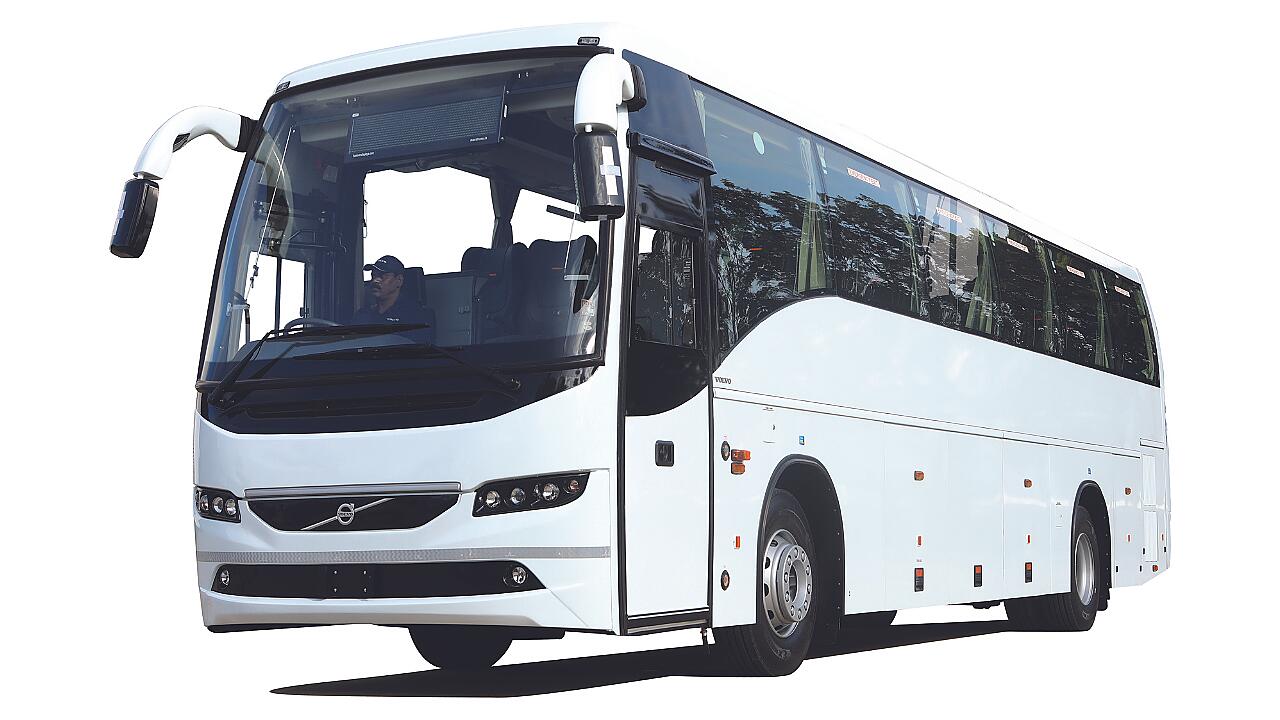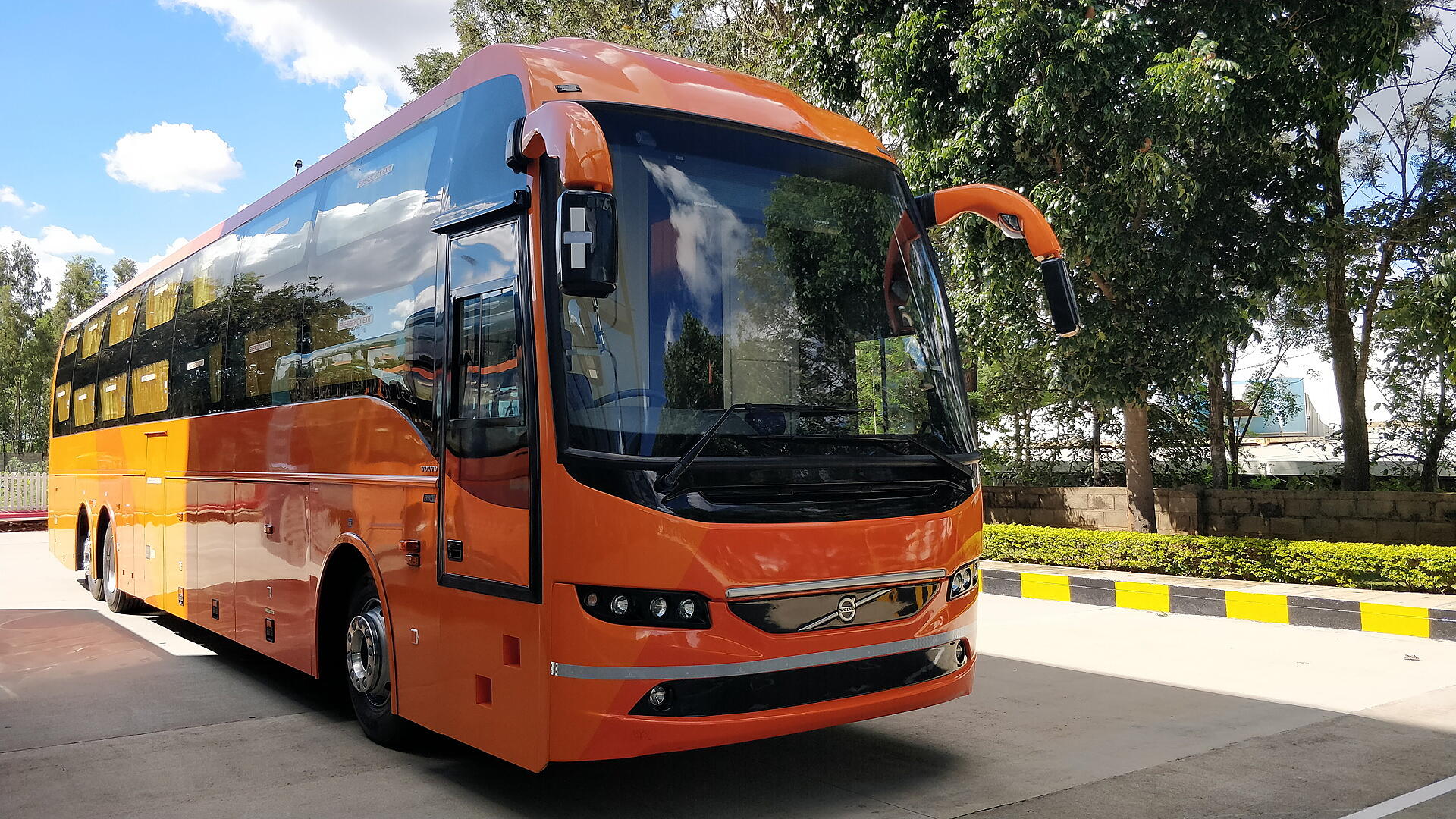
Akash Passey is the founding President of the Bus Division at VE Commercial Vehicles Ltd –a Joint Venture between the Volvo Group and Eicher Motors Limited in India. Prior to taking up this assignment Akash served as Sr. Vice President – Volvo Bus Corporation. As a member of the Volvo Bus Executive Management, he was most recently responsible for business performance in the International Region covering Asia Pacific, Africa/Middle East, China, CIS countries and India.
What is the current status of the bus industry?
Pandemic has been a challenging situation for everyone, especially the bus industry, where we have never seen anything like this over the last 75 years since independence. All the operators, more or less in the private sector, have restructured their business and loan. But, on the other hand, the state transport undertakings have had no operations and revenue coming in. We know that the manpower costs in their business are extremely high. So all in all, the package for the bus industry has been a sad one, where everyone has suffered.
What about your company?
It has also impacted all our products – mass, value and premium. So given this fact, I think it's only over the last three to four months that there's some confidence in the market, where the smaller parts of the business have started to come back, especially in the small and medium buses. The premium bus business is still showing offshoots, but by the middle of next year, we should have good traction in this industry.
What is the response to the recently launched B8R 13.5 bus?
We did not want to wait until everything became normal and then show something. Somebody needs to take a positive approach. And that's what we took. We were the first ones in India to introduce a new product – in this case, 13.5 B8R.
I believe that already in the market, there are bus bodybuilders, who are extending the normal 12 m buses to 13.5 m. So from that point of view, there's a legal solution, and it will offer extra seats. With the permit for bus industry coming in now in clear terms, long-distance travel will get a boost.

Are there any pain points to be addressed in this vehicle?
Not really. The one-and-a-half year period has been time enough to do many things. So while the external market has been closed, this period has given us the possibility to do what we wanted to pursue for the last five to 10 years.
One of the objectives of integrating Volvo Bus India with VECV in August 2020 was to maximise synergies to capitalise on the market opportunities. So where is the company in this journey today?
Over the last year, we have been working on a number of products on both the Volvo and the Eicher brands, which are desired when the regular market comes back.
Talking of synergies now, we have a great playing space. We have been very strong in the light and medium-duty segment as Eicher, while at Volvo, we have been very strong in the premium heavy-duty segment. With Eicher coming in with the heavy-duty bus, we naturally have common customers. Most of our customers have Volvos comprising 25-30% of their fleet. While the remaining fleet is front-engine heavy-duty, and that is where we now have an Eicher solution to offer with the new HD bus, which has just been launched in early November. It was built at the Hosakote plant.
Therefore, the synergy is very clear with the front-engine bus built at Volvo’s Hosakote facility to meet customer expectations. We can use synergies and frugal engineering base, which we have in India with VE commercial vehicles.
Would this also optimise your suppliers and supply chain?
Absolutely; we will see much more localisation and a much more cost-effective approach from a customer perspective. There is a lot of commonality on the supply chain front, which can be used especially on the body and some aggregates on the chassis side.
What are the significant advantages both brands could garner till now?
It is a long journey. It has just been one year since we have combined the organisations. With one bus division focusing on two brands, the customer connection has improved.
We are addressing a larger market, and the customer also feels delighted that the company not only discusses Volvo premium solutions or Eicher school bus or a staff bus solution, but the whole gamut of buses costing five lakh rupees to one-and-a-half crore rupees.
So, whatever the customer needs – either a front-engine solution, a mass market or premium solution, a CNG or diesel solution and over the coming times, an electric solution – we can offer. That brings in much respectability, a lot of connection, which will help us shape the future for the bus industry.
There is always a trade-off in a partnership or integration. What is the trade-off for both brands?
We must appreciate that this is not a new joint venture; VECV is one of the most successful joint ventures of the Volvo Group worldwide, which has already been in place from 2008 onwards. A lot of amazing things have already been done in this joint venture. There is very high trust between the stakeholders. About three to four years back, we started work with VECV as Volvo Bus India to look at some synergies on the purchasing side, supply chain, connectivity, etc.
Of course, we have to see that we are not investing doubly. We can create synergies, be more prudent, and share platforms even if one is a mass brand and the other is a premium brand. There is a large space in the value segment, where frugal engineering from Eicher and design technology from Volvo can create an excellent value-based product for the Indian public.
Are there sweet spots in the overall bus segment for you to leverage?
Already there is the first front-engine Eicher bus. Today, there is hardly any product in the INR 50-100 lakh price bracket, and this is one product that comes in this price band. No manufacturer today offers a complete air-conditioned front-engine luxury bus – seater or sleeper. With this synergy, Eicher, which is a strong school and staff bus brand, now moves up into the heavy-duty premium space with a front-engine product. And that is icing on the cake as we see it.

How will this help the large fleet operators?
It is very advantageous for the large fleet operators as they can just come to one company to get solutions for all the bus segments. The product, services, backend, connectivity, and all offers will be common to a large extent. It is very good for the customers as they deal with one company that can give them all sources or products or services rather than going into different organisations.
What are the key points that you have in your mind to pursue in the next five years?
Our motto is to shape the future of the Indian bus industry. In India, there is one bus available per 1,000 people. Our nearest competitor China has six buses per 1,000. So, there is a huge gap in public mobility last mile connectivity in India today, leading to two/three-wheelers and cars becoming very important for personal transport. As sales of these vehicles grow, congestion will go into another dimension.
We see a great future for the bus industry. So, our focus in the next three to five years is to offer products from the lowest range to the highest range, from the mass to value to premium segments, from normal ICE technology with diesel to CNG and electric. We would like to be in the whole space and become a one-stop product and service shop for our customers. So that is what we look forward to and I am sure we will get there in the next three to five years.
Are there any initiative from your side for the headquarters to achieve carbon neutrality?
Both Volvo Group and Eicher are much focused. Couple of weeks ago, Eicher Motors made its debut on the Dow Jones Sustainability Indices in the emerging markets category. It is among the 10 global automotive companies to feature on the elite list for 2021. Volvo Group is already there with a very high ranking.
In the Volvo Group, it has been stated that the future is electric worldwide, and 30-40% of our products by 2025 will be electric. The Indian government is pushing electric. We are now in the electric space, and we are bidding for all the tenders that are coming in. In the CNG space, we have seen a big shift. About 50% in certain categories or segments of our products are already CNG. That is an important area. We will create a good balance, but we'll be pretty focused on sustainability.